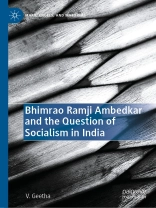This book offers a reading of Bhimrao Ambedkar’s engagement with the idea and practice of socialism in India by linking it to his lifelong political and philosophical concerns: the annihilation of the caste system, untouchability and the moral and philosophical systems that justify either. Rather than view his ideas through a socialist lens, the author suggests that it is important to measure the validity of socialist thought and practice in the Indian context, through his critique of the social totality. The book argues its case by presenting a broad and connected overview of his thought world and the global and local influences that shaped it. The themes that are taken up for discussion include: his understanding of the colonial rule and the colonial state; history and progress; nationalism and the questions he posed the socialists; his radical critique of the caste system and Brahmancal philosophies, and his unusual interpretation of Buddhism.
İçerik tablosu
1. Introduction.- 2. A Part Apart.- 3. Pax Britannica.- 4. A New Time.- 5. Graded Inequality and Untouchability.- 6. The Pre-requisites of Communism.- 7. What Path to Salvation?.- 8. Buddha or Karl Marx?.
Yazar hakkında
V. Geetha is an independent scholar based in Chennai, India.












